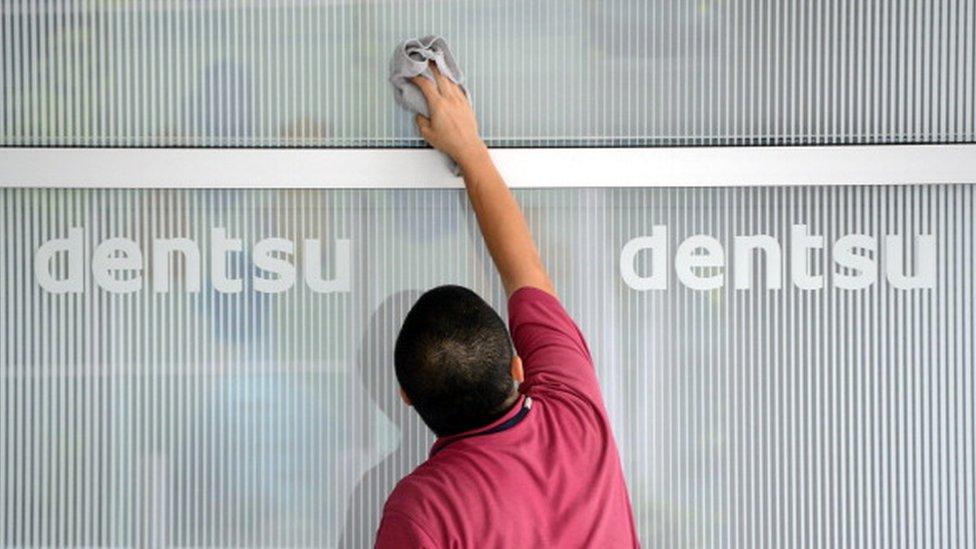Dentsu's overtime fine puts spotlight on Japan's work culture
- Published
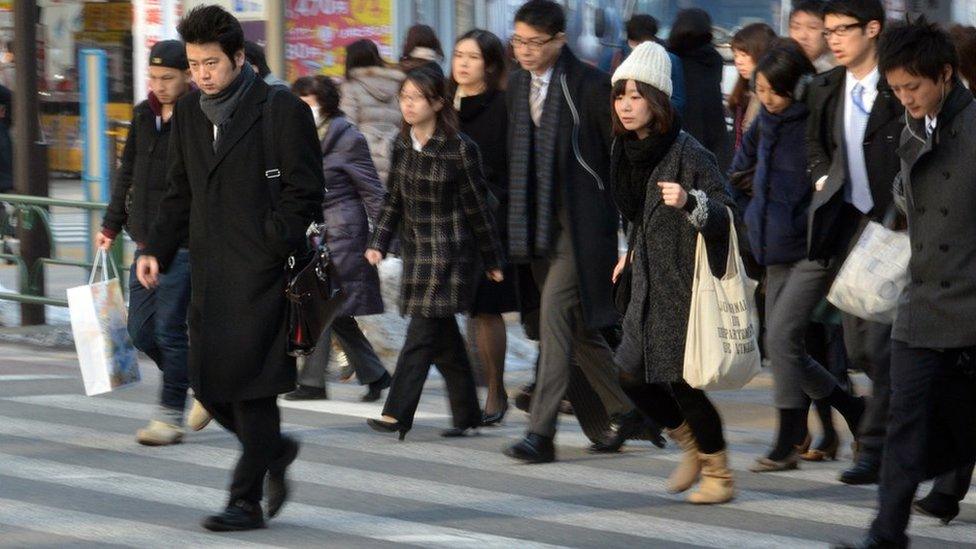
Japan's culture of long working hours has come under scrutiny
Japanese advertising firm Dentsu has been fined for making employees work excessive overtime, a practice that is widespread in the country.
On Friday, a Tokyo court ordered the company to pay 500,000 yen ($4,400; £3,380) for violating labour laws.
Dentsu's workplace culture has been scrutinised after young worker Matsuri Takahashi killed herself in 2015.
Death from overwork is a longstanding problem in Japan and even has its own word: karoshi.
Japanese authorities found that Ms Takahashi's excessive work - reported to have included 100 hours of overtime a month for some time before her death - led to her suicide.
The high-profile case led to renewed calls for changes to the country's notoriously long working hours and illegal unpaid overtime.
Scott North, Professor of Sociology at Osaka University graduate school of human sciences, said overwork is a "chronic problem" in Japan.
But he added the modest fine imposed on Dentsu, one of the country's largest advertising agencies, won't be much of a deterrent.
"You can see why the occasional death might be considered just a comparatively small cost of doing business, especially when contrasted with the labor costs that can be saved by having people work unpaid overtime," he told the BBC.
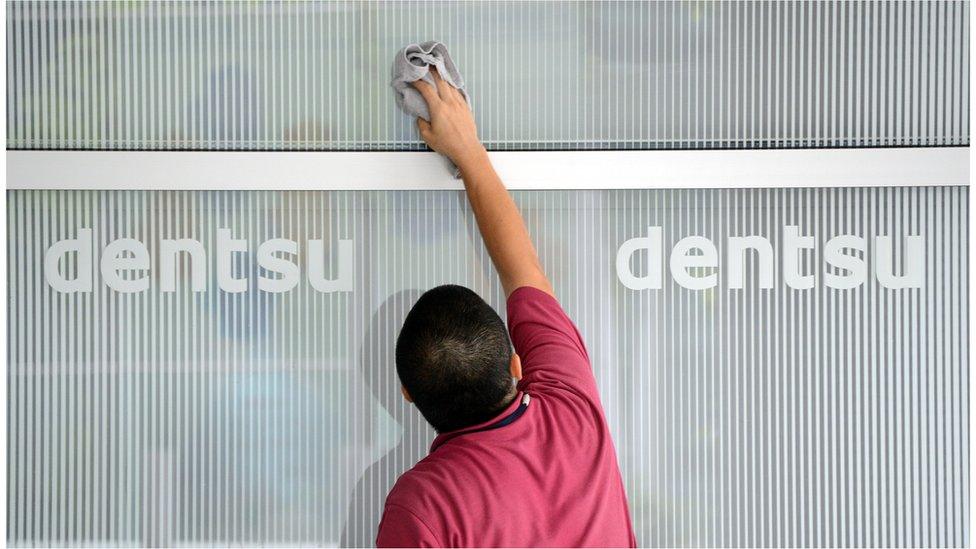
Dentsu is one of Japan's biggest advertising agencies
Wasted life
The problem was again highlighted this week, when public broadcaster NHK said authorities determined the death of reporter Miwa Sado in 2013 was caused by overwork. The 31 year old died of heart failure.
A year after Ms Sado's death, local authorities concluded the political journalist clocked up to 159 hours of overtime a month. She only had two days off in the month leading up to her death.
"Even today, four years after, we cannot accept our daughter's death as a reality," Ms Sado's parents said in a comment released by NHK. "We hope that the sorrow of the bereaved family will never be wasted."
The Dentsu and the NHK deaths are among the recent cases that have spurred calls for action on the social problem which was first recorded in the 1960s.
Amid increasing public pressure, Prime Minister Shinzo Abe's has endorsed a plan for sweeping reforms of workplace reforms, including caps on overtime and better pay for contract workers.
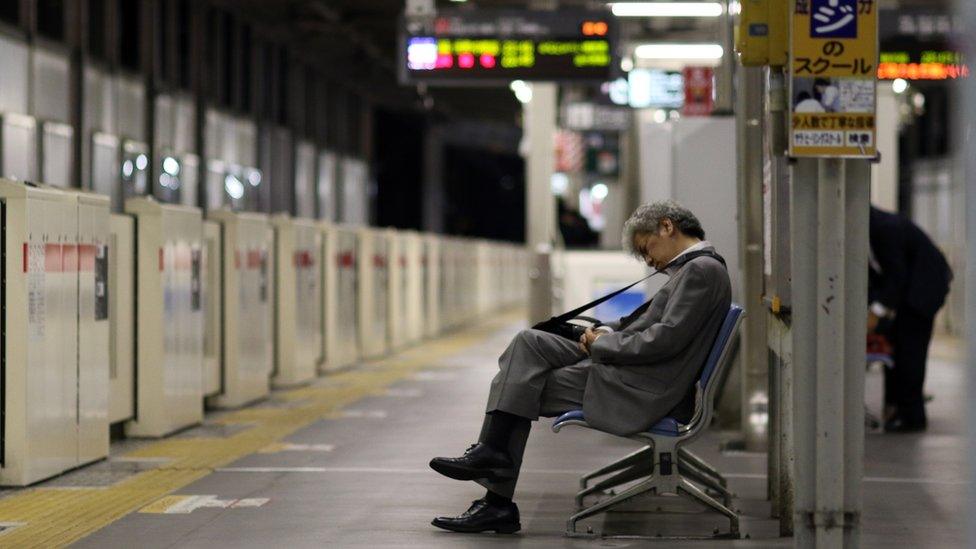
Men are the most affected by karoshi in Japan
Number of deaths
Officially, several hundreds of deaths are linked to karoshi each year, counting heart attacks, strokes and suicides. Campaigners say the real number is much higher.
A government survey published last year found nearly a quarter of Japanese companies have staff working more than 80 hours overtime a month, often unpaid. And 12% have employees breaking the 100 hours a month mark.
Eighty hours overtime a month is viewed as the level above which a person has an increased chance of dying.
Some more important figures: Around 2,000 karoshi claims for government compensation are filed every year. Prof North said around 37% of those claims are successful.
He added that not all claims are for suicides or deaths due to heart attacks or other circulatory disease.
"Sometimes the victims of overwork suffer strokes or debilitating depression which leave them alive, but unable to work," he said.
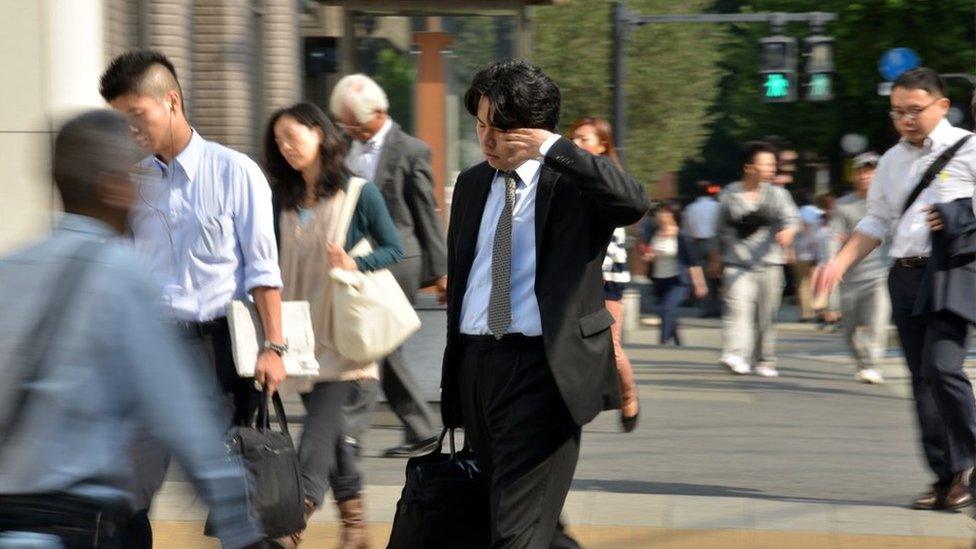
Many Japanese workers clock more than 80 hours of overtime a month
Culture change?
Efforts have been made to change the culture of long working hours, including initiatives to encourage government employees to take more leave. Companies have also instituted mandatory "go home early" days.
For its part, Dentsu's reform attempts in the aftermath of Ms Takahashi's death are reported to include turning off the lights at ten o'clock every night in a bid to force staff to leave.
A law implemented in 2014 to counter karoshi focused on education and awareness campaigns. Prof North said while it requires employers make efforts to reduce hours, it doesn't impose any penalties for failing to do so.
"Government efforts to address the overwork/karoshi problem cannot be described as successful," he said.
- Published8 July 2017
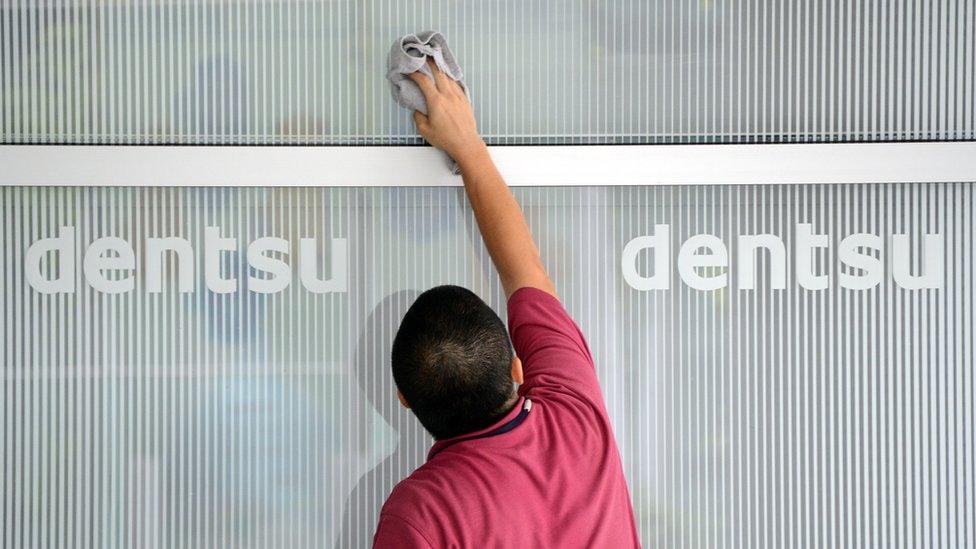
- Published7 November 2016
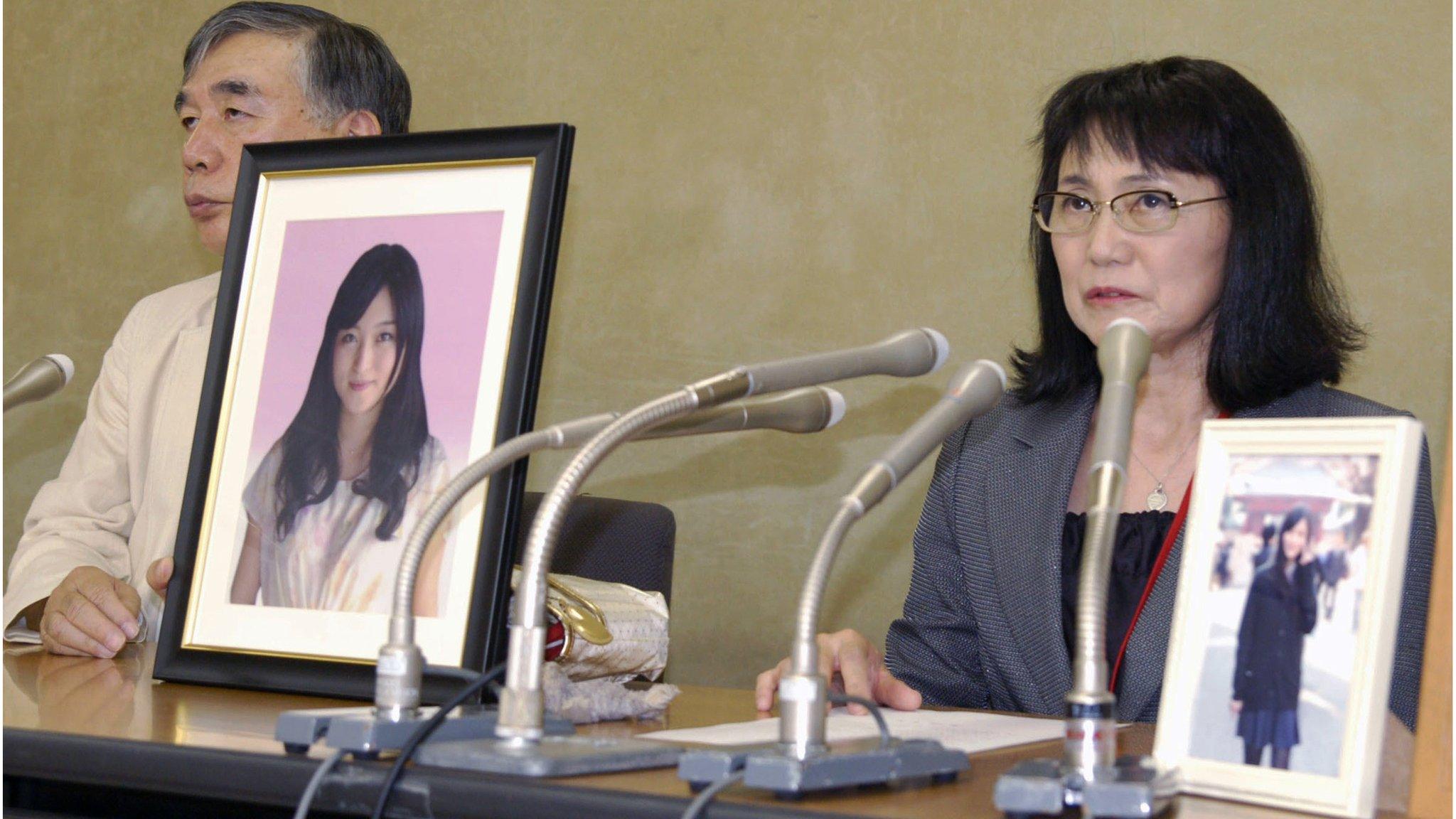
- Published28 December 2016
